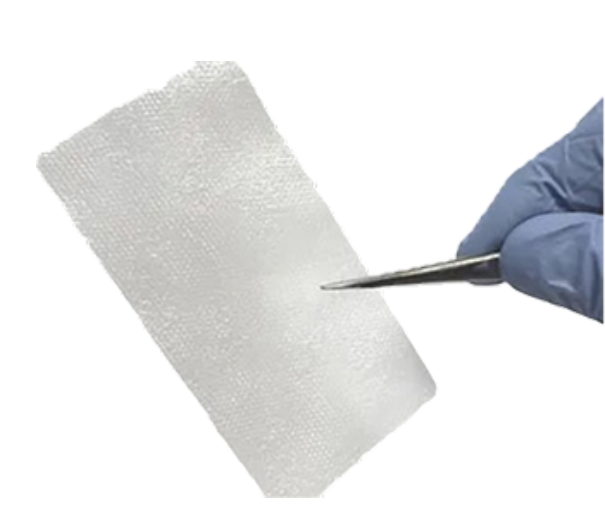Wound healing can be a complex and prolonged process, especially when dealing with chronic or non-healing wounds. The right treatment approach not only improves healing outcomes but also enhances patient comfort and reduces the risk of infection.
In recent years, biologic therapies have transformed the field of wound care by using the body’s own regenerative capabilities. Among these, amniotic wound care products have gained remarkable attention for their ability to accelerate tissue repair, reduce inflammation, and improve healing across different wound types.
What Does Amniotic-Based Wound Care Mean?
Amniotic tissue, derived from the innermost layer of the placenta, is rich in growth factors, cytokines, and extracellular matrix components that promote cellular regeneration. When processed into wound care products, these biological materials help create an optimal healing environment. They can be applied as grafts, membranes, or injectable forms depending on the wound type and severity.
What makes amniotic tissue particularly valuable is its ability to support natural healing processes without triggering an immune response. This biocompatibility allows for safe use across a range of wounds- whether they are surgical, traumatic, diabetic, or pressure-related. For clinicians, understanding these properties is key to selecting the right product for each patient’s unique needs in advanced wound care.
Factors to Consider When Choosing Amniotic Wound Care Products
-
Wound Type and Severity
Different amniotic products are formulated to address specific wound types.
- Acute wounds such as surgical incisions or traumatic injuries benefit from thin, easily conformable grafts that protect the site and accelerate early tissue repair.
- Chronic wounds, including diabetic foot ulcers, venous leg ulcers, or pressure sores, often require thicker grafts or layered membranes that provide sustained protection and prolonged release of growth factors.
- Selecting the appropriate thickness, structure, and application method is essential to achieving optimal outcomes.
-
Processing Methods and Preservation
The effectiveness of an amniotic product largely depends on how it is processed. Some products are cryopreserved to maintain viable cellular components, while others are dehydrated for easier storage and longer shelf life. Each method has distinct advantages:
- Cryopreserved products retain live cells and biological activity, making them suitable for complex wounds requiring intensive healing support.
- Dehydrated products are convenient and easy to use in outpatient settings, offering excellent stability and rapid application.
- Clinicians should consider the patient’s wound status and treatment setting before choosing the preservation type.
-
Product Composition and Layers
Amniotic wound care products may include the amnion layer alone or a combination of amnion and chorion layers. The dual-layer configuration provides enhanced strength and growth factor content, making it ideal for deeper or more resistant wounds. In contrast, single-layer membranes work well for superficial wounds and minor injuries.
-
Ease of Application and Handling
In clinical practice, the product’s ease of use plays a crucial role. Products that require minimal preparation and conform easily to irregular wound surfaces can save time and reduce patient discomfort. Some manufacturers also offer products that integrate with secondary dressings, streamlining wound management protocols.
Benefits of Amniotic Wound Care Products
Amniotic tissue offers several biologically driven benefits that make it a valuable tool for both chronic and acute wound management:
- Accelerated healing through the release of natural growth factors and signaling proteins.
- Reduced inflammation due to its anti-inflammatory cytokines and immune-regulating properties.
- Minimized scarring through improved tissue regeneration and reduced fibrosis.
- Enhanced patient comfort with less pain and better moisture balance.
When integrated into a comprehensive wound care program, amniotic products not only promote healing but also reduce the frequency of dressing changes and overall treatment time.
Clinical Applications and Evidence
Numerous studies support the use of amniotic-derived products in managing complex wounds. Clinical evidence demonstrates improved healing rates for diabetic ulcers, pressure sores, and postoperative wounds. In chronic cases, amniotic membranes have shown to restore healthy tissue growth even after other conventional treatments fail.
For patients with acute injuries, these products protect against infection and dehydration while encouraging faster epithelialization. By maintaining a moist, biologically active environment, amniotic wound care products enhance the body’s natural repair processes and improve outcomes across various wound categories.
Integrating Amniotic Products into Wound Care Protocols
Successful integration involves understanding product specifications, patient needs, and clinical goals. Healthcare providers should:
- Evaluate wound type, depth, and healing stage before product selection.
- Follow manufacturer protocols for product storage and application.
- Monitor progress regularly and combine biologic therapy with debridement, compression, or infection control as needed.
- With proper use, these biologic dressings can significantly improve wound management efficiency and patient satisfaction.
Conclusion
Selecting the right amniotic wound care solution requires balancing biological effectiveness, clinical practicality, and patient-specific factors. Whether treating acute surgical wounds or chronic ulcers, amniotic membranes and grafts represent a breakthrough in regenerative medicine, offering real hope for faster and more complete healing.
For clinicians and care teams seeking reliable, evidence-based biologic therapies, Life Biologics provides innovative and clinically tested solutions that elevate wound healing outcomes and patient care standards.









